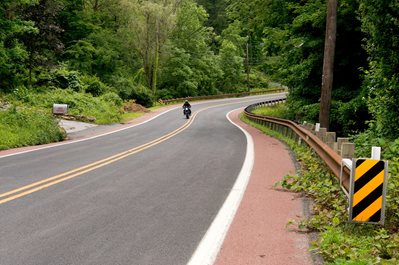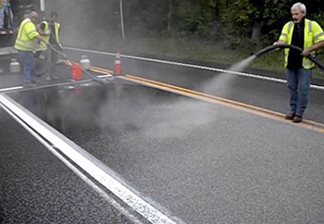High Risk Rural Roads: Application Details
 This page is intended for NJTPA subregions interested in applying for funding through the High Risk Rural Roads program. For general information about this program visit the Local Safety and High Risk Rural Roads page.
This page is intended for NJTPA subregions interested in applying for funding through the High Risk Rural Roads program. For general information about this program visit the Local Safety and High Risk Rural Roads page.
The Highway Safety Improvement Program (HSIP) as a core Federal-aid program implemented under MAP 21 and continued under the FAST Act with the purpose of achieving a significant reduction in fatalities and serious injuries on all public roads, including non-State-owned public roads. Highway Safety Improvement projects are selected on the basis of supportive crash data, and must be consistent with the State’s Strategic Highway Safety Plan (SHSP.)
The High Risk Rural Roads Program (HRRRP) provides the NJTPA region with Highway Safety Improvement Program (HSIP) funds to advance safety improvements on rural roadways that have been identified as high risk. These roadways are functionally classified as a rural major or minor collector or as a rural local roads and have crash rates that exceed the NJTPA region’s average for those functional classes of roadways.
 |
| High friction surface treatment and chevron signs along curves are both Proven Safety Countermeasure that have each been shown to reduce fatal and serious injury crashes on wet roads by 24 to 52 percent. Here, the treatment is being applied in Somerset County. |
Projects in HRRRP are eligible to receive HSIP funding for design, construction and construction inspection. The Local Safety Engineering Assistance program (LSEAP) was created in 2013 to assist the subregion with design and advancement through the construction authorization process in both programs. Once projects are selected for each program, NJTPA staff initiates the consultant selection process for design assistance.
FHWA issued a “Guidance Memorandum on Promoting the implementation of Proven Safety Countermeasures” in January 2012. The latest safety research is reflected in advancing a group of countermeasures. The 2017 update of the FHWA list includes 20 Proven Safety Countermeasures. Consideration of FHWA Proven Safety Countermeasures which have shown great effectiveness in improving safety is an important component in HRRRP.
HRRR Program Solicitation
A solicitation for the Local Safety Program occurs on nearly an annual basis. Program details include:
- Projects must be on roadways functionally classified as rural major collector, rural minor collector or rural local roads with a crash rate that exceeds the statewide average for those functional classes of roadways.
- Only NJTPA member subregions are eligible to submit applications to the NJTPA for this program (the 13 member counties and the cities of Newark and Jersey City). Municipalities located within the subregions may make a request through their respective county to sponsor an application. The project sponsors are the designated responsible charge for overseeing and adhering to the federal funding process;
-
Improvements NOT eligible under this program: Routine maintenance/ replacement projects (including general resurfacing projects), congestion management/roadway capacity enhancements (road widening), improvements involving State, U.S. and Interstate highways including any improvements at intersections with such facilities and aesthetic improvements along the right-of-ways;
-
Project sponsors must complete Highway Safety Manual (HSM) and benefit/cost analyses as part of the application process;
-
The federal National Environmental Policy Act (NEPA) regulations must be followed. As such, projects must have minimal or no environmental and cultural resource impacts and be eligible for a NEPA categorical exclusion (CE) document approval.
Contact Information
Christine Mittman
Project Manager, Safety Programs
973-639-8448
[email protected]
Patricia Newton
Project Lead, Safety Programs
973-877-8128
[email protected]
or
Sascha Frimpong
Director, Local Programs and Project Development
973-639-8422
[email protected]